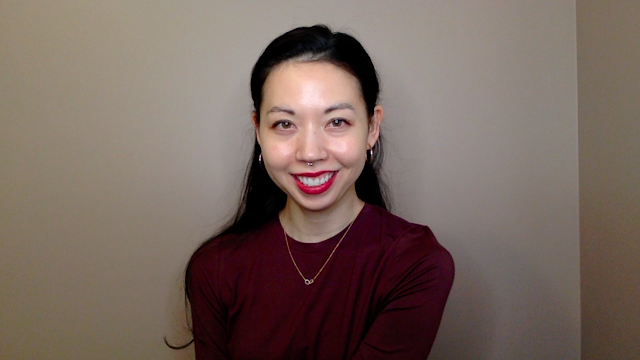VIDEO: The Importance of 'I Don't Know'
Tons of research and experts agree: it's okay, even highly recommended, to admit when you don't know something.
One of our primary responsibilities in Production is being a conduit of information. We are not the information. This is an important thing to distinguish because I find that Production attracts a lot of Type A folks - we like to be in control, have all the answers, and are achievement-oriented.
At the same time, I have found in my experience at least, that the weakest Production staff I have worked with tend to have one thing in common: they rarely (or never) admit when they don’t know something.
When people don’t admit if they don’t know something, I find this leads to further problems: missing opportunities for collaboration and teamwork, and being inflexible for growth and feedback. In a previous video, we also discussed how pretending to know it all is also a sign of someone who is a micro-manager.
In Production, it’s not about knowing all the answers but rather, how to find them. For this video, I want to make a case why it’s a much better practice to admit when you don’t know something then to proceed as if you know it all.
Plus, to be frank, know-it-alls are annoying.
And it’s not just me - I have read probably about a half dozen self-help and/or career books, and the majority of them emphasize the importance of saying “I don’t know."
Celeste Headlee, author of We Need To Talk: How to Have Conversations that Matter says there are two important reasons to say, “I don’t know,”:
First, you establish a foundations of trust and honesty, and second, you admit your own fallibility […] Owning up to a mistake or a lack of knowledge might feel like admitting weakness, but it can create a powerful empathetic bond.
- from We Need To Talk by Celeste Headlee
All this being said, in Production, you can’t simply say, “I don’t know,” and drop a topic. Follow up with something like — “I’m not sure, I’m going to check our stats and get back to you in 5” or “Good question! Let me look into it I’ll get back to you ASAP.”
Annie Duke, author of Thinking in Bets supports this saying,
What makes a decision great is not that it has a great outcome. A great decision is the result of a good process, and that process must include an attempt to accurately represent our own state of Knowledge. That state of knowledge, in turn, is some variation of ‘I’m not sure’.
‘I’m not sure’ does not mean that there is no objective truth. It means that we treat our beliefs as works in progress, as under construction.
- from Thinking in Bets by Annie Duke
I like this idea of our beliefs being a work on progress, a journey. After all, if we arrive at a conclusion, we end our opportunity to keep learning and growing. David Whyte says in The Three Marriages,
Not knowing what to do, we start to pay real attention. Just as people lost in the wilderness, on a cliff face or in a blizzard pay attention with a kind of acuity that they would not have if they thought they knew where they were. Why? Because for those who are really lost, their life depends on paying real attention. If you think you know where you are, you stop looking.
- from The Three Marriages by David Whyte
Astra Taylor offers similar food for thought,
Acknowledging our ignorance and being inquisitive about the unknown can help us navigate inevitable perils.
- from The Age of Insecurity by Astra Taylor
Alternatively, consider this warning from Taylor:
Certainty is not security, it's a snapping shut and a cover-up— an attempt to escape from the insecurity of not knowing. Instead of showing strength, this kind of certainty makes us rigid, brittle, and closed-off.
- from The Age of Insecurity by Astra Taylor
So then in Production, if its best to admit when we don’t know something, is there an ever an end to it? As uncomfortable as it may seem, a lot of books I have read say no, there is no end to ‘I don’t know’, and to get used to this.
In the end, you may not have the answer, you might, however, have some wisdom. Martha Beck says in her book The Way of Integrity:
In fact, the further I go on the way of integrity, the more I know that I don’t know much about how reality works [...] We’re socialized to think that not knowing is stupid and shameful. But in traditions like Zen, ‘don’t know mind’ refers to a way of thinking that’s free from rigid concepts […] From a place of enlightenment, the mind’s job isn't to shore up beliefs, but to let them go.
- from The Way of Integrity by Martha Beck
I’ll end this on a personal anecdote. In high school, I was lucky enough to have the opportunity to see His Holiness the Dalai Lama speak in Vancouver. The audience could submit questions, and one of the first questions was he got was, “what is the meaning of life?” And you know what? The Dalai Lama, one of the most renowned and prestigious leaders in the world just chuckled and said, “I don’t know!”
Further learning
The Way of Integrity: Finding the Path to Your True Self by Martha Beck
The Three Marriages: Reimagining Work, Self, and Relationship by David Whyte
We Need To Talk: How to Have Conversations that Matter by Celeste Headlee
Thinking in Bets: Making Smarter Decisions When You Don't Have All the Facts by Annie Duke.
VIDEO: My Best Practices at Work
VIDEO: 3 Phrases to Drop: Work Edition
VIDEO: What is Micromanagement?


